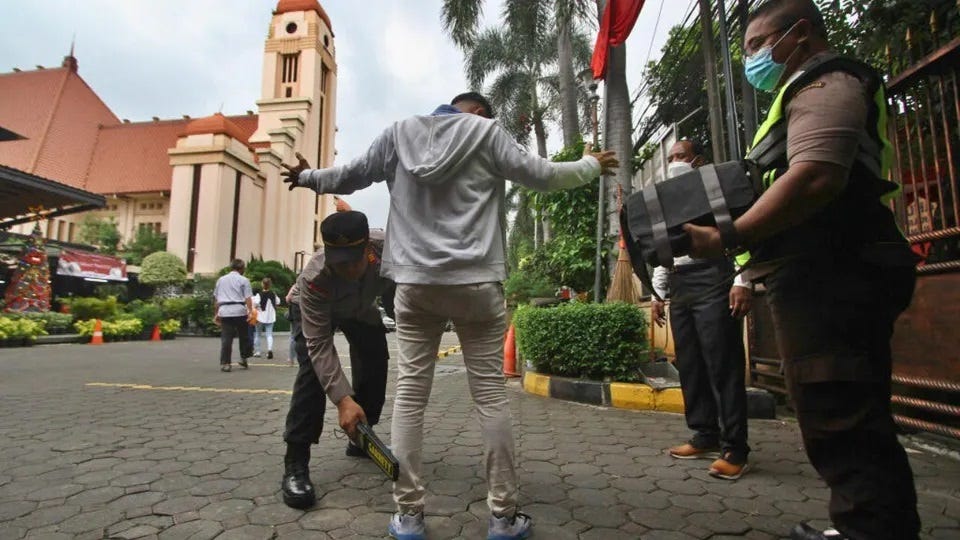'Uzbek terror suspects had contact with local ISIS man in Indonesia'
One Uzbek got money wired to him from Turkey and Malaysia, says an Indonesian terrorism researcher.

JAKARTA: The group of four Uzbek terror suspects arrested in Indonesia recently had earlier met with an Indonesian ISIS sympathiser in capital city Jakarta and discussed plans including one that presented them as preachers in order to expand the terror group’s influence in the Southeast Asian nation, according to a terrorism researcher.
The four Uzbeks were originally arrested by Indonesian authorities in March for allegedly spreading terrorism propaganda online.
Indonesian police said they were linked to the al-Qaeda-affiliated Katiba al Tawhid wal Jihad, a designated global terror group especially active in Syria.
On Monday, an attempt by three of the Uzbeks to escape from an Indonesian detention centre left an immigration officer and one of the detainees dead, police said Tuesday, with the surviving suspects rearrested.
“Those Uzbeks were well connected with their colleagues in Russia, Turkey and Malaysia before they ended up in Indonesia,” Ulta Levenia Nababan, an Indonesian government-linked terrorism researcher, told me.
“We are not sure whether their colleagues in several countries were also part of terror groups, but their intention in Indonesia was to take advantage of the absence of a hardliner to promote ISIS in Indonesia,” said the terrorism researcher at Galatea, a Jakarta-based think tank.
Ulta said the Uzbeks had met with an Indonesian ISIS sympathiser, identified as HS, his initials, in Jakarta and discussed plans to expand ISIS in Indonesia.
“This Indonesian guy, still at large, was proposing to those Uzbeks to be a new kind of Ustadz (Islamic knowledge teacher) here to convince people to travel abroad supporting ISIS,” she said.
However, there was a disagreement between the Uzbeks in planning their activities before their arrest.
“There was a conflict between one Uzbek, Bekhzod and another named Bakhrom,” said Ulta. “As Bekhzod was more of a business person, he was open to any opportunity in Indonesia, and this was where eventually he and Bakhrom separated because Bakhrom was more of an ideological individual.
“Bekhzod wandered around and even slept in many mosques in Indonesia because he didn’t have money that was controlled by Bakhrom. Eventually, he met with the Indonesian ISIS sympathiser. This Indonesian guy discussed business with Bekhzod and thought that he could be a good preacher.
“So this radical Indonesian, let's call him HS, wanted to collaborate with Bekhzod, to build a business in Indonesia. For this, Bekhzod needed funds which he was asking for from his terror group members in Syria and Turkey.”
In Indonesia, a famous ustaz or preacher can have a lucrative side job such as in alternative therapy, added Ulta.
Ulta said Bekhzod had been problematic within his group from much earlier when he was fired from his job at a ministry in Uzbekistan because he allegedly used marijuana.
“So, talking about the level of radicalism, Bekhzod was less radical, he was seeking opportunities and fortunately (for him) terror groups were providing funds. He got money wired to him from Turkey and Malaysia,” said Ulta.
“For Bekhzod, it is money or business first. For the others, it is building terror networks first.
“I think this is the first FTF activity in Indonesia after Covid-19,” she said, using the abbreviation for foreign terrorist fighters.



